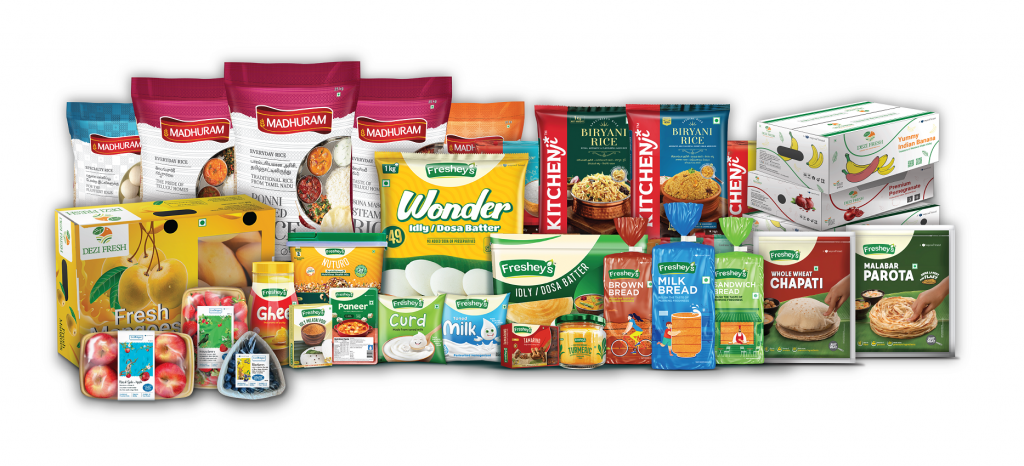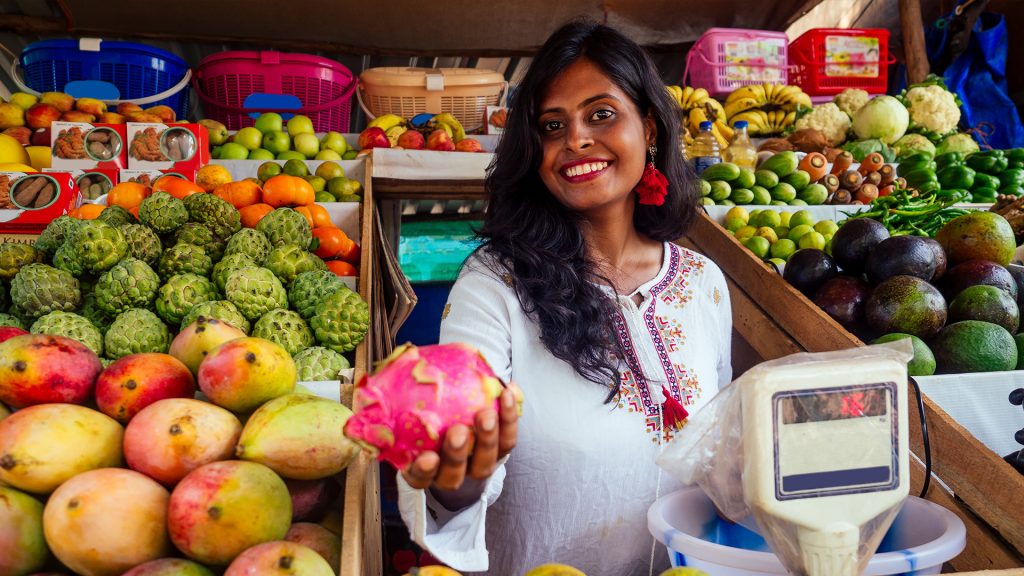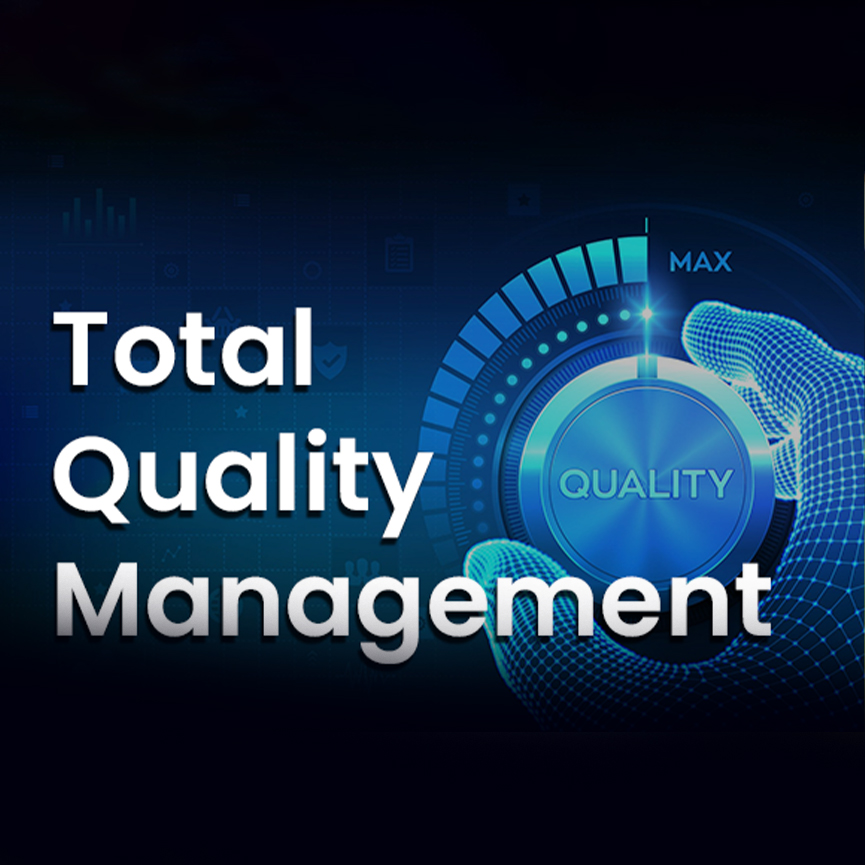WayCool Forays into Homegrown Brands
Posted on October 11th, 2023

The COVID-19 outbreak was unforeseen and brought about several changes with regards to our lifestyle, thought process, and businesses among other things. During the nationwide lockdown, all of a sudden, customers found their favourite or preferred labelled products missing from the retail shelves, most probably due to panic buying or shortage of products. When shoppers could not find these brands, they settled for private-label goods.
The private-label brands were not only easily available but were comparatively lighter on the customer’s pockets as well, contributing to the birth of a new range of products in the market. This switch in the buying behaviour of the customers encouraged more and more organizations to launch their ‘home brands’ in the market. Even in the post-COVID era, shoppers who made this switch are still sticking to the private-label brands primarily because of their quality.
WayCool Foods is one of India’s largest and fastest growing agri-commerce companies. Founded in July 2015, WayCool Foods’ operation has spread across product sourcing, food processing, branding and marketing, last mile distribution, and farm inputs. This has given WayCool end-to-end control over the food value chain.
Our main focus has always been on food development and distribution. The company controls innovative technology to gauge and operate a complex supply chain right from soil to sale. Through its farmer engagement program, Outgrow, WayCool works with 85,000+ farmers. It operates a full stack, broadline product range across multiple channels and categories such as fresh produce, staples, and dairy, serving over 1,00,000 clients in the general trade, modern trade, and food services space.
WayCool has now launched its homegrown brands in an attempt to offer the best quality and cost-effective products to its customers. Its consumer brand basket consists of Madhuram, KitchenJi, L’exotique, and Freshey’s, to name a few.
Let’s take a look at each of these homegrown brands.
Meet the Brands
WayCool has always offered the best. This includes class consistency and variety across product categories like fruits, vegetables, cooking oils, dairy, rice, pulses, maida, and even value-added products like pastes, purees, and batter. WayCool’s homegrown brands are created by conducting extensive quality control right from source to your doorstep.
The health and safety of the consumers is our priority, and WayCool ensures that its manufacturing units are regularly audited by the QA team on stringent safety and quality parameters.
Kitchenji
KitchenJi, WayCool’s first home brand, offers a range of dals, staples, and spices. Each product ingredient is sourced and carefully handpicked from the most authentic places, and hygienically packed.
With a wide range of dals, spices, dry fruits and nuts, and sweeteners, Kitchenji will surely add a magical touch to your meal.
The dals are unpolished making them not just tasty, but also highly nutritious. The spice range is sourced directly from the farms, and is unadulterated and clean. The sweeteners are free of chemicals and are 100% natural. Last but not the least, the dry fruits and nuts by Kitchenji can be eaten directly from the pack. These nutritious superfoods are full of flavour.
WayCool’s rigorous quality control process ensures that you receive only the best. They do extensive systematic checks across all stages right at the beginning from sourcing to packaging and distribution at the end.
Madhuram
WayCool understands that people from different parts of India prefer different types of rice. Keeping this in mind, Madhuram offers different types of rice, from the Ponni variety to the Rajabogam, from Matta to Sona Masoori. The rice is sourced from select farms.
Everyday pulses such as toor dal and urad dal are also offered by Madhuram.
Freshey’s
Freshey’s is a ready-to-cook and convenience food brand. It is known for its flagship product idli/dosa batter, and is now expanding into a value-added dairy portfolio. It also has a range of organic products like idli chilli powder, appalam, curd, ghee, turmeric and organic paneer, too.
The brand caters to homemakers who are stressed for time but value home-cooked food. The USP of Freshey’s is the convenience it brings to the homemaker in home cooking. The brand is available in most retail stores and supermarkets across the Greater Chennai region.
L’exotique
L’exotique offers a wide range of top-quality apples, oranges, and kiwis, all sourced straight from the best orchards from across the world. When you buy fruits from L’exotique, you get quality, hygienic and fresh fruits. Our quality assured farm fresh exotic fruits go through in-depth standardized checks before they reach you.
WayCool controls the raw materials, processing, and packing technology. It has built a robust supply chain ecosystem for last-mile customers or retailers. Therefore, it is only natural for WayCool to come up with its own in-house brands.
Harnessing Technology to Transform the Indian Retail Sector
Posted on October 11th, 2023

As a retailer, imagine if you could accurately determine exactly what your customers want, and when they want it. What if you could get real-time updates that tie this information into order placements and inventory levels? The bar seems to be set too high, right? Let’s take a look at how this applies to the retail sector in India.
The Indian retail sector is riddled with issues relating to accurate predictions. About 73% of retail organizations in the country had difficulties in demand-planning owing to a lack of accurate, timely, and updated information. Anticipating consumer demand is another common issue.
This problem is bigger for kirana stores. They face several legacy issues, including minimal or zero-digitisation. For these mom & pop stores, demand forecasting and inventory management have always stemmed from gut feeling or intuition.
This problem is bigger for kirana stores. They face several legacy issues, including minimal or zero-digitisation. For these mom & pop stores, demand forecasting and inventory management have always stemmed from gut feeling or intuition.
Getting deeper into the numbers, India houses around 12 million grocery outlets and thousands of wholesalers and distributors. Adding to the voluminous number of players is the multi-tiered structure.
The past decade has seen an overhaul of the Indian grocery ecosystem with e-commerce and cash-and-carry stores increasing with every passing day. However, the issue of fluctuating demand stands unresolved.
Another factor was the COVID-19 pandemic that forced everyone to remain indoors. Consequently, the last few years have witnessed uncertainties for Indian consumers and grocery retailers.
The tectonic shift in the Indian retail sector
Addressing the acute challenges faced by the Indian retail sector, WayCool is creating a revolution with its Retail Tech stack.
WayCool has developed an all-inclusive app that fulfils every need and requirement of retailers. The retailer tech includes hyper-localized order placements, instant order tracking, and customized offers and discounts. The idea is that the order screen gets curated according to the retailer.
WayCool’s Retail Tech stack facilitates customized service for every single retailer, enabling them to fulfil their business needs with utmost efficiency. Gone are the days of complex procedures and cumbersome scrolling for order processing.
The portal tracks real-time information on inventory while placing orders. This enables them to track the exact time of arrival (ETA) of the purchase requisition. The app also has provisions for contingencies such as traffic levels and other logistical aspects.
Another crucial aspect of WayCool’s Retail Tech is personalized pricing.
How does this work?
The founding parameter here is the purchase history. Depending on the frequency and volume of purchases, retailers can avail of different rates. Yet another consequent avenue is the special offers and discounts. These, too, vary from retailer to retailer, depending on their purchase background. The more frequent and voluminous the transaction, the steeper the discount.
The app keeps a tab on purchase history. No longer does the retailer need to go through the entire process of finding the right product. Doing so helps with ensuring repeat orders in the future.
The Retail Tech solution is powered by advanced Artificial Intelligence (AI) and Machine Learning (ML) algorithms. The crux of these algorithms is data and actionable insights. Customer purchase history and user preferences get fed into the system. The algorithm then evaluates and studies every piece of data, further leveraging the information to provide them with better and personalized services.
The platform offers product suggestions and captures trends based on demographic and socio-economic parameters, the gateways for hyper-localisation. For instance, the rice variant suggested to a retailer in Mumbai’s Matunga will be closer to those consumed in Tamil Nadu since Matunga has a sizable Tamil population. Similarly, the product recommendations will be drastically different from those ordering from Dadar, Juhu, and other pockets in Mumbai.
Essentially, through the WayCool app, retailers are now well-informed across the entire customer journey, thus helping them make better decisions.
The way forward
Technological prowess and its progress are inevitable. Aspects like Machine Learning, Deep Learning and Artificial Intelligence are quickly making their mark on the retail sector. Robotics and IoT have transformed the entire food value chain, from seed to harvest to retail logistics and the customers’ doorstep.
While AI, ML and DL take care of insights and data, robotics sets out to contribute heavily to day-to-day operations. Especially in warehouses where automation caters to material handling, cleaning, sorting, grading, and other manual tasks. Cumulatively, these assimilate data across processes, from production to consumption, into a cohesive interconnected digital ecosystem with data on demand at every touchpoint.
As India’s leading Agri-tech and Agri-commerce company that moves over 900 tonnes of fresh agricultural produce every day, WayCool is already reaping the tangible benefits of infusing technology at every stage of the agri value chain.
Towards Safer Food, Better Health For All
Posted on October 11th, 2023

Safe food is a basic necessity, and WayCool believes in delivering high quality and safe food. This drove WayCool to do something quite unheard of in the agri business – work towards ISO certification for our fruits and vegetables distribution centre. Given the perishable nature of the product, this is a tricky road to go down.
Each stakeholder in the food ecosystem has a responsibility towards collectively improving food safety concerns. In its pursuit of a safe food culture, WayCool has been validated by TUV SUD, a reputed international provider of quality and safety certifications and receiving ISO 22000:2018 (Food Safety Management System) certification for our fruits and vegetables distribution centre at Virugambakkam, Chennai.
This is a milestone with its own significance for WayCool. It is a display of the company’s culture of continual improvement and commitment towards “safer food, better health”. The certification also comes as a great motivational factor for our team which has put tremendous effort into adopting quality as a culture. It confirms our best-in-class food safety and management system, and ensures the best in quality for our consumers.
Setting a high benchmark in food quality and safety management for the financial year 2022-23, WayCool is determined to continually improve the food safety management systems across its distribution centres. In addition, we are working towards achieving GFSI (Global Food Safety Initiative), a recognized certification for business units.
WayCool Foods is also committed to keeping its customers satisfied with quality and safe produce, and continuously works towards keeping the facilities in line with the statutory and regulatory requirements complying with FSSAI, legal metrology, and follows the principles and standards of ISO 22000:2018.
Our endeavour in food safety also depends on improving employees’ competence skills with regular training, by implementing good warehouse practices, and driving the organization’s food and safety management systems through efficient and effective digitization. A food safety team leader, who monitors the performance of food safety management systems regularly and reports the results to the top management for further improvement, is also in place.
WayCool procures fresh produce from farmers through its network of collection centres, and delivers quality products to industries such as e-commerce platforms, food services and big retail chain customers.
TUV SUD conducted a two-stage audit at our Virugambakkam distribution centre as per the scope for receiving, sorting and grading, storage, packing, and dispatch of fresh fruits and vegetables. WayCool sought the certification by adhering to food safety management standards. After the successful completion of the audit, the distribution centre is now one amongst a few companies certified as ISO 22000:2018. At WayCool, we believe that safe food should not be a luxury, but a necessity. And each of our decisions is in line with creating a safe food ecosystem for all.
WayCool Migrates to SAP 4/HANA in Record 22 Days vis-à-vis Industry Standard of 12 Months
Posted on October 11th, 2023

The continually evolving business and customer needs call for a more agile, cost-efficient, scalable, and secure IT enterprise environment. Full control and transparency over information and real-time insights now drive the governance, monitoring, and proficiency of operations across the spectrum.
WayCool, India’s largest food and agritech platform, works as an interconnected supply chain driver that provides a singular, unified view from soil to sale of agricultural produce. As a startup, WayCool initially used conventional legacy applications that were causing a disrupted information flow, thus adding bottlenecks to evolution and scale. A traditional ERP system meant little to no interconnectivity between different businesses of the company.
As the business evolved and became more complex, WayCool decided to migrate to SAP 4/HANA for seamless integration of all IT applications. Scalability, enhanced margins, better inventory management, and automated controls accrued as some of the immediate benefits of this move.
The business challenge
WayCool’s legacy ERP lacked a finance module, leaving the organization to rely on TALLY for their MIS. While this was manageable for one retail store, it compounded the manual interventions with expansion. Every new retail location required a new ERP and TALLY license that inherently didn’t interconnect with each other. A unified dashboard was missing from the ecosystem, making the company lose out on real-time analysis and actionable insights.
After WayCool diversified to the B2B sector, the company was operating around 30 Distribution Centres (DCs) spread across six states in India. To get a consolidated MIS, the entire information had to go through over 120 manual reconciliations every month. Setting up a new DC translated to adding at least 5 more manual reconciliations to this mix, making the entire exercise labour-intensive and inefficient.
Data transparency was required across diverse verticals to ensure on-time planning and on-demand scalability. To top it all, the pandemic had forced the entire country into lockdown during this time.
The solution
SAP 4/HANA was implemented as the core ERP at 44 plants with three objectives – a modular but interconnected ecosystem, AI-driven embedded analytics, and on-cloud accessibility. Considering the onus placed on a timely and successful deployment, a 40-member team was dedicated exclusively to the task. A collective effort, even with work-from-home, led to the platform going live in just 22 days! While it often takes years to complete a migration of this magnitude, WayCool stabilized its end-to-end SAP 4/HANA deployment within 60-70 days.
Project highlights
- Foundation laid for supply chain efficiency across different business applications
- A completely customizable, unified dashboard acting as a single source of truth for real-time data analysis
- 100+ integrations facilitating 247 unique scenarios undertaken with over 200 training sessions
- 40+ integrations across 5 in-house platforms for end-to-end transparency
- Around 7,000 tickets were raised, addressed, and resolved during the migration
The results
- Multi-dimensional full-stack tech platform: WayCool is now India’s only enterprise in agri-commerce, hosting a robust digital platform, AI-ML enabled decision engines, and expanded services with a peripheral ecosystem.
- Elimination of manual reconciliation: Integration of the in-house platform streamlined the transaction flow and led to 1274 orders being processed per day instead of only 119.
- Enhanced margins: The inclusion of real-time actionable insights from all the locations and consolidated knowledge has resulted in a 3-4% increase in profitability.
- Seamless scalability: With SAP 4/HANA, the end-to-end ERP system for any new plant can now be readied in just 3 days resulting in an unhindered scalability that matches the company’s aggressive growth plans.
- On-demand review of business performance: Automated management for credit, price, and inventory controls have been built on top of SAP 4/HANA for intelligent risk mitigation with a plan to expand to 200+ warehouses in the next two years.
- Blanketed information: The entire company now has complete data transparency through the analytical integrations created with the implementation.
The plan ahead
WayCool is in the second phase of the deployment now with a focus on algorithm-driven automated prioritization and processing of outbound payments. This development is expected to clear more than 2,000 daily disbursements, which had to be done manually earlier. All the bank accounts are planned to be integrated directly into the system, creating a single point of approval.
WayCool has moved from a disconnected ERP system to a platform with the foundation to fulfil the company’s objective of sustainable growth.
